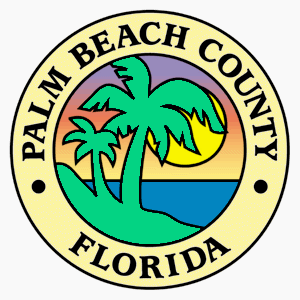Justice Department and Consumer Financial Protection Bureau Sue Developer and Lender for Bait-and-Switch Land Sales and Predatory Financing targeting Hispanic Borrowers
- At January 09, 2024
- By fhfla
- In News
 0
0

The Justice Department and Consumer Financial Protection Bureau (CFPB) today sued Colony Ridge, a Texas-based developer and lender, for operating an illegal land sales scheme and targeting tens of thousands of Hispanic borrowers with false statements and predatory loans.
“Today’s complaint alleges that Colony Ridge targeted Hispanic consumers with predatory loans, misled borrowers about the water, sewer, and electrical infrastructure on its lots, and exploited language barriers by conducting most of its marketing in Spanish while offering important transaction documents only in English,” said Attorney General Merrick B. Garland. “Discrimination in lending harms families and neighborhoods for generations, it is wrong, and it has no place in our country. That is why I launched the Department’s Combating Redlining Initiative more than two years ago and why we remain steadfast in our commitment to continue this work.”
The lawsuit filed in federal district court alleges Colony Ridge sells unsuspecting families flood-prone land without water, sewer, or electrical infrastructure, and that the company sets borrowers up to fail with loans they cannot afford. Roughly one-in-four Colony Ridge loans ends in foreclosure, after which the company repurchases the properties and sells them to new borrowers. The Justice Department and CFPB are seeking redress for borrowers harmed by Colony Ridge and an immediate end to its illegal practices.
“Colony Ridge promised the American dream, but we allege that in reality, it has delivered a nightmare for thousands of hardworking Hispanic families who hoped to build their homes in the Terrenos Houston community,” said Assistant Attorney General Kristen Clarke of the Justice Department’s Civil Rights Division. “This lawsuit demonstrates our commitment to holding accountable those in the housing and financial industry who intentionally target and exploit homebuyers because they are Hispanic or don’t speak English well. Through our Combating Redlining Initiative, the Justice Department will aggressively continue to dismantle predatory, deceptive, and unfair lending practices to safeguard the rights of all who seek to buy a home.”
“The lawsuit filed in federal court by the CFPB and the Justice Department charges Colony Ridge with a slew of illegal misconduct and seeks to stop this set-up-to-fail scheme that has led thousands of families to lose their dreams of homeownership,” said CFPB Director Rohit Chopra. “Our investigation uncovered that Colony Ridge is baiting borrowers with lies, saddling families with predatory loans for homesites that the company knows have repeatedly flooded with raw sewage and lacked basic utility infrastructure.”
“Using 21st century social-media applications to target and mislead consumers, Colony Ridge set out to exploit something as old as America — an immigrant’s dream of owning a home,” said U.S. Attorney Alamdar S. Hamdani for the Southern District of Texas (SDTX). “As alleged in the complaint, Colony Ridge’s exploitative practice began with misleading advertising on platforms like TikTok and often ended with families facing economic ruin, no home, and shattered dreams. The SDTX, joined by our partners at the Justice Department’s Civil Rights Division and the CFPB, filed the complaint as a promise to work tirelessly to bring justice for the Hispanic families who fell prey to Colony Ridge’s alleged predatory lending practices and to send out a warning to the vulnerable: beware of lenders who use promises of easy financing to steal both nest-eggs and dreams.”
The lawsuit names as defendants three Texas-based Colony Ridge affiliate companies, as well as Loan Originator Services, a nonbank mortgage company licensed to originate loans in Texas. Colony Ridge has developed more than 40,000 lots spread across an unincorporated area of Liberty County, Texas, approximately 30 miles northeast of Houston. Colony Ridge markets these subdivisions using the names “Terrenos Houston” and “Terrenos Santa Fe.”
According to the complaint, Colony Ridge targets Spanish-speaking borrowers: it advertises almost exclusively in Spanish, often in TikTok or other social media posts featuring, for example, national flags and regional music from Latin America. In these advertisements, Colony Ridge promises consumers the dream of homeownership with its own seller financing: an easy-to-obtain loan product that requires no credit check and only a small deposit.
The complaint further alleges that Colony Ridge has lured tens of thousands of vulnerable Hispanic consumers into their predatory loan products. Foreclosure and property deed records from September 2019 through September 2022 show that Colony Ridge initiated foreclosures on at least 30% of seller-financed lots within just three years of the purchase date, with most loan failures occurring even sooner. Records also confirm that Colony Ridge accounted for more than 92% of all foreclosures recorded in Liberty County between 2017 and 2022.
Specifically, the complaint filed today alleges that Colony Ridge:
-
Misleads borrowers about infrastructure on the lots it sells: Colony Ridge has falsely represented that lots in the Terrenos Houston subdivisions were sold with water, sewer, and electrical infrastructure already in place. The complaint cites numerous advertisements, including TikTok videos where the company makes claims like “Terrenos Houston tiene todos los servicios de ciudad por cada terreno” (“Terrenos Houston has all city services for each lot”). It is only after applicants pay a non-refundable deposit that Colony Ridge discloses the properties may not provide those services and makes that disclosure only in English.
-
Sells lots that flood with rain and raw sewage: The complaint alleges that Colony Ridge employees fail to inform borrowers of flood risk when lots have repeatedly flooded in the past, or falsely tells them the lots have not flooded. In fact, in parts of the Terrenos Houston subdivision, rain causes significant flooding, causing raw sewage to run through or around borrowers’ property, and damaging their personal belongings.
-
Targets Hispanic consumers with predatory loans: Through direct-to-consumer marketing on websites, social media engagement, and telemarketing, Colony Ridge targets Hispanic consumers. Colony Ridge then exploits language barriers during its sales process and uses high-pressure sales tactics to push borrowers to obtain their loan product quickly. The loans have exorbitant interest rates. Between 2017 and 2021, interest rates on Colony Ridge’s loans ranged from between 10.9% to 12.9%, while a standard 20-year fixed rate loan averaged 2.35% to 4.05% during the same timeframe. And in extending the loan, Colony Ridge and Loan Originator Services did not collect information needed to determine if applicants can afford the loan.
-
Churns through borrowers in a cycle of foreclosure: When families fall behind on payments and enter foreclosure, it allows Colony Ridge to “flip” the properties by repurchasing and reselling them, often at higher prices. Foreclosure and property deed records show that Colony Ridge flipped at least 40% of all the properties it sold between September 2019 and September 2022, selling approximately 8,237 properties twice, 3,267 properties three times, and 2,067 properties four or more times in three years.
-
Exploits language barriers at borrowers’ expense: While Colony Ridge conducts most of its marketing activities in Spanish, when it comes to the actual transaction it offers important documents only in English. Failing to offer borrowers accurate translations of contracts, deeds, and other documents in the language in which it conducts the sales and exploiting borrowers’ limited English proficiency violates federal law.
Enforcement Action
The complaint alleges that defendants unlawfully discriminated against applicants on the basis of their race or national origin in violation of the Fair Housing Act (FHA). Under the FHA, the Justice Department has the authority to take enforcement action against real estate companies, lending institutions, and other entities whose practices discriminate in residential real estate-related transactions, the availability of housing, and housing-related services. The complaint also alleges that defendants unlawfully discriminated against applicants on the basis of their race or national origin in violation of the Equal Credit Opportunity Act (ECOA), and its implementing regulation, Regulation B. Both the Justice Department and CFPB have the authority to enforce ECOA. Additionally, the complaint alleges defendants’ deceptive acts and practices violate the Consumer Financial Protection Act of 2010 (CFPA) and the Interstate Land Sales Full Disclosure Act (ILSA) and its implementing regulations, Regulation K and Regulation J, all of which is enforced by CFPB.
The complaint seeks to stop Colony Ridge’s alleged unlawful conduct, provide relief for affected consumers, and impose a civil penalty payable to the CFPB victims relief fund. If the defendants are found liable, the amount of any restitution will be determined in the litigation in federal court.
Anyone who believes they have been harmed by the practices of Colony Ridge Development LLC, Colony Ridge BV LLC, Colony Ridge Land LLC, and Loan Originator Services LLC should call the Justice Department’s Housing Discrimination Hotline at 1-833-591-0291, press 1 for English, then 3 for fair lending, and then 1 for Colony Ridge Lawsuit to leave a message. For the Spanish Hotline, callers should press 2 for Spanish, then 3 for fair lending, and then 1 for Colony Ridge Lawsuit to leave a message. Individuals can also send an email to ColonyRidge.Lawsuit@usdoj.gov.
This lawsuit is a part of the Justice Department’s Combating Redlining Initiative. Redlining is the illegal practice where lenders deprive communities of color from equal access to loans and lending opportunities. Reverse redlining occurs when lenders target communities of color with inflated interest rates and/or other unjust lending terms. Both practices prevent communities of color from achieving sustainable homeownership and both deny these communities the opportunity to build wealth.
The Combating Redlining Initiative is the Justice Department’s most aggressive and coordinated enforcement effort to address all forms of redlining. Since 2021, the Justice Department’s Combating Redlining Initiative has secured over $100 million and 10 settlement agreements with banks and mortgage lending institutions to provide credit opportunities to communities of color in Houston; Memphis, Tennessee; Philadelphia; Camden, New Jersey; Wilmington, Delaware; Newark, New Jersey; Los Angeles; Columbus, Ohio; Tulsa, Oklahoma; Rhode Island; and Jacksonville, Florida. The Department has partnered with U.S. Attorneys’ Offices, federal financial regulatory agencies, including the CFPB, and state Attorneys General offices to enforce federal fair lending laws that prohibit redlining. This lawsuit is the first reverse redlining action under the initiative.
New study seeks to address peristant Racial housing inequities in Palm Beach County
- At November 30, 2023
- By fhfla
- In News
 0
0

A first-of-its-kind study on racial inequities in homeownership in Palm Beach County has concluded that discriminatory housing practices still exist and warned the situation could hurt the economic growth of the area as a whole.
Dozens of housing experts and county officials who took part in a panel on the release of the report this week were aligned on the scale of the problem — and the difficulty of finding a solution. It was done by the Florida International University Jorge M. Pérez Metropolitan Center.
Among the report’s stark conclusions were that a history of segregation — to this day — harms the ability of people of color to own homes and build generational wealth, with practices such as exclusionary zoning and racially discriminatory mortgage practices still prevalent. That inequity was exacerbated during the COVID-19,
When it comes to homeownership, there are wide disparities rooted in a history of discrimination and segregation, according to the FIU researchers. Only 52% of Black residents in the region own their home, compared to 59% of Hispanics and 77% of whites.
“Housing discrimination and residential segregation have long hindered the ability of Black individuals and families to become homebuyers and build equity,” researchers wrote.
The study recommends bolstering a proposed new Affimiatively Furthering Fair Housing rule by the U.S. Department of Housing and Urban Development to help Black homeowners and buyers, and address racial disparities in housing in Palm Beach County.
Vince Larkins, FHC President/CEO praised the study. ” This study goes a long way in highlighting the persistance of housing segregation in Palm Beach County that cannot continue to be ignorded. The FHC commends all those involved in the important study and look forward to working proactively with all of our community partners and stakeholders to make Equal Housing Opportunities a reality for all residents.”
To view the full study CLICK HERE.
Justice Department Files Statement of Interest in Religious Land Use Case Involving Oregon Church That Feeds People Who are Homeless or Hungry
- At November 28, 2023
- By fhfla
- In News
 0
0

The Justice Department has filed a statement of interest in the U.S. District Court for the District of Oregon explaining that a city’s decision to restrict a church’s distribution of meals to people who are homeless or hungry may have substantially burdened religious exercise under the Religious Land Use and Institutionalized Persons Act (RLUIPA).
The statement of interest was filed in St. Timothy’s Church v. City of Brookings, Or., a lawsuit alleging that the City of Brookings imposed a substantial burden on the religious exercise of St. Timothy’s, an Episcopalian church, with a recently enacted ordinance that prohibits the church from serving free meals to persons in need more than two days per week, subject to a discretionary permit.
“Many churches and faith-based organizations across the country are on the front lines serving the critical needs of people experiencing hunger and homelessness,” said Assistant Attorney General Kristen Clarke of the Justice Department’s Civil Rights Division. “Discriminatory zoning restrictions that burden and limit religious organizations’ use of their land violate federal antidiscrimination laws. The Justice Department is committed to enforcing federal civil rights laws to ensure that all religious groups can freely exercise their religious beliefs.”
For over a decade before this ordinance was enacted, St. Timothy’s had been providing meal service up to four days per week, and as many as six days per week, including during the Covid-19 pandemic, based on community need. The church has even testified that it feels a religious duty to provide food to those in need.
The city argued in part that RLUIPA did not apply to the city’s actions against St. Timothy’s and that the ordinance did not substantially burden St. Timothy’s religious exercise. The department is refuting the city’s claims. Specifically, it asserts that RLUIPA’s protections apply in this context, that St. Timothy’s provision of meals to people in need is protected religious exercise and that the city’s attempt to restrict St. Timothy’s meal service may have substantially burdened the church’s religious exercise by forcing it to violate its beliefs in order to comply with local land use laws.
RLUIPA is a federal law that protects religious institutions from unduly burdensome or discriminatory land use regulations. In June 2018, the Justice Department announced its Place to Worship Initiative, which focuses on RLUIPA’s provisions that protect the rights of houses of worship and other religious institutions to worship on their land. More information is available at www.justice.gov/crt/placetoworship.
As part of this initiative, the department has filed statements of interest in other RLUIPA cases involving faith-based services to persons in need, including in Micah’s Way v. City of Santa Ana (Civil Rights Division | Statement of Interest in Micah’s Way v. City of Santa Ana (C.D. Cal.) | United States Department of Justice). Additionally, the department recently hosted an outreach forum with religious leaders at Seton Hall Law School in Newark, New Jersey, on combating religious discrimination under RLUIPA, and plans to hold additional outreach events in California and Michigan.
Individuals who believe they have been subjected to discrimination in land use or zoning decisions may contact the U.S. Attorney’s Office Civil Division’s Civil Rights Section at (213) 894-2879 or the Civil Rights Division’s Housing and Civil Enforcement Section at (833) 591-0291 or may submit a complaint through the complaint portal on the Place to Worship Initiative website. More information about RLUIPA, including questions and answers about the law and other documents, can be found at www.justice.gov/crt/about/hce/rluipaexplain.php.


